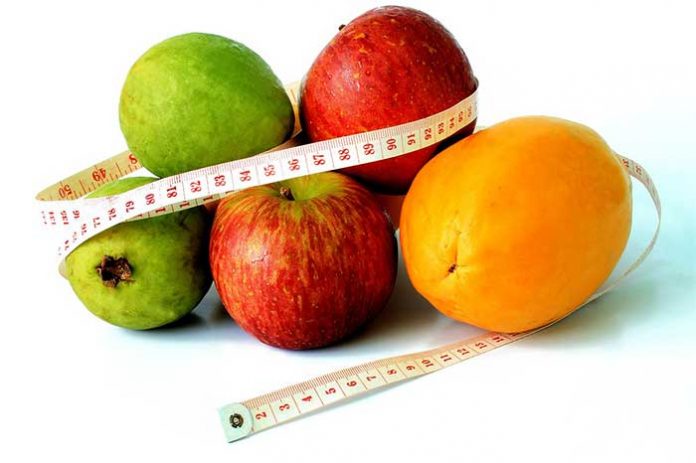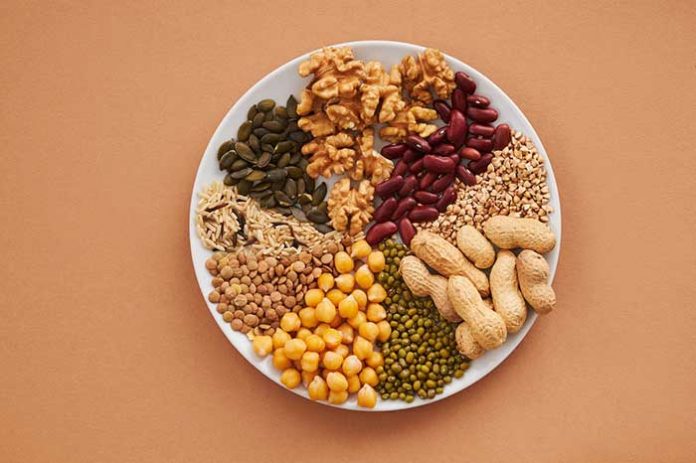The ketogenic, or keto, diet is well-known for its ability to support fast weight loss, but there are a lot of keto myths out there that may make you hesitant to go to this “extreme” to lose belly fat.
11 Common Keto Myths You’ll Come Across
Here are 11 misunderstandings that are prevalent in society and which keep most of us from giving it a try. Have you been guilty of believing in any of these myths?
1Myth: You’ll Have to Cut Calories to Lose Weight

Not on keto.
Eating carbs increase your appetite and cravings. People who eat lots of carbs tend to eat more and more often. On keto, you limit carb intake and replace them with foods that keep you full longer. You’re not hungry.
It’s hard to overeat on keto unless you completely ignore fullness cues, as you might after visiting a local New Jersey dispensary.
You may think that eating that waffle and syrup fills you up. But what it does is deliver a short sensation of fullness followed by hunger as soon as it moves into the intestine.
On keto, you eat food that takes much longer to digest. And once that food is no longer delivering energy, your body taps right into body fat instead of sending hunger signals, which is why people lose fat weight on keto.
2Myth: You Need to Restrict All Carbs

While you may find some keto gurus online telling you to restrict all your carbs. This is not the consensus in the keto community, and it’s not based on science.
Certain carbs go straight through your body. They don’t raise your blood sugar or spike insulin. They won’t kick you out of ketosis. So restricting these carbs wouldn’t make sense.
Most people on keto count net carbs. That’s the total carbohydrates minus fiber and sugar alcohols.
You should, however, be careful with sugar alcohols. Too much sugar alcohol can cause digestive issues and may encourage you to overeat. These foods stimulate your pleasure hormones, even though they don’t contain sugar.
3Myth: It’s Hard to Get Your Fiber

The USDA recommends 25 grams of fiber for women and 38 for men. That may seem impossible on a diet where you’re significantly restricting net carbs.
But the difficulty is an illusion. According to research vegetables are the source of 30-40% of fiber intake in western countries. You can eat a lot of them. And they’ll taste better because you’re no longer addicted to sugar.
Seeds and nuts like flax, chia, pecans, brazil nuts, and walnuts are also very low net carb. And let’s not forget avocado, together these are known as super foods. Unless you really have no variety in your diet, it’s unlikely you’d ever be fiber deficient on keto.
4Myth: Keto Costs a Lot

It can be expensive if you buy a lot of processed keto foods. But these are generally discouraged on keto, except as an occasional treat.
In addition to your vegetables, berries, seeds, and nuts, you’re likely to eat lots of these items, which will be most nutritious if you choose pasture-raised, grass-fed, etc., as applicable.
- Eggs
- Ground beef
- Salmon
- Sardines
- Skin-On Chicken
- Pork
- Bacon
- Sausage
- Butter
- Coconut oil
- Olive oil
- Heavy cream
- Berries
And before you say coconut oil, olive oil, grass-fed meats are expensive, let’s dispel that little myth. People on keto eat less and less often than people on the Standard American Diet (SAD) because they’re less hungry.
And you can undoubtedly do keto cheaply. Just eat lots of eggs. Skip the meat.
5Myth: You’ll Load Up on Processed Meats
That’s a personal choice. You can choose better-for-you-options like this scrumptious keto tuna casserole. Most people who long-term keto limit processed meats.
When possible, you can choose uncured and opt for nuts for an on-the-go snack instead of cured meat to limit your consumption.
6Myth: You’ll Become Nutrient Deficient
Like a vegan lifestyle or any more restrictive diet, you have to pay attention to what you’re eating to avoid deficiencies.
What are you giving up that’s so nutritious? Chances are, not much. Mostly refined grains, GMO corn, and processed foods stripped of nutrients and loaded with added sugar. You’re replacing all this with whole, natural, nutrient-rich foods.
7Myth: You’ll Overeat Saturated Fat

That again goes back to personal choice. But this one is a half-truth.
Most of us have been wired to think that saturated fat is bad fat. Nutritional guidelines suggest we should limit it. But those recommendations are based upon junk science. The researcher eliminated the outcomes that did not align with their hypothesis showing a correlation between saturated fat and heart disease that does not exist.
But even if you do choose to limit your saturated fat out of an abundance of caution, you can certainly do that on keto.
8Myth: Keto will make you feel depressed
Transitioning to a keto diet leads to a lot of depression, like symptoms like brain fog, irritability, and lethargy. But, the good news is that such experiences don’t last long.
In fact for many, such symptoms can be entirely avoided by just increasing water intake and consuming enough salt.
Out of many keto myths that people believe, this one is hard to desist. Some people relate it to the withdrawal symptoms faced by substances like alcohol and nicotine. Probably because on a keto diet you’re basically cutting out on sugar which tends to stimulate same rewards pathways in the brain, like nicotine and alcohol.
But the truth is that in long term a keto diet makes many people feel more energized and also increases mental endurance and cognitive performance.
9MYTH: Keto is bad for bones
One of the most common keto myths floating around is that the keto diet leads to osteoporosis. They’re usually based on the unfolded idea that you consume less milk and lots of protein which makes your blood acidic.
Acid is indeed bad for bones but, a low-carb diet does not affect blood PH. In fact, it is the opposite. People with high protein intake have stronger bones. Also, following a keto diet means you have to consume only around 20% of protein, which makes it a moderate-protein diet.
10Myth: Keto affects your kidneys
A prevalent keto myth is that it messes with your kidneys but, several studies show that this is untrue. The rumor is based on a similar misconception that protein affects your kidneys negatively.
As stated above that in a keto diet, you only consume 20% of protein which makes it a moderate-protein diet. Also, if you have a normal kidney function, even high protein won’t cause harm to them.
11Myth: Keto is not sustainable
Even though keto may seem extreme at first, it is just because it is very different from traditional American diets. In reality, it is in line with how humans are grown to eat.
If you think about it, diets which are high in plant based carbs and processed foods are completely opposite to our historical dietary norms.
Keto Demystified
Keto may seem restrictive or unhealthy on the surface, but you truly can keto in a very healthy way and still benefit from this eating lifestyle, either short-term or long-term. So, If you’re thriving on a keto diet, you shouldn’t have any reason to give it up. Hence it’s only a keto myth that it’s not sustainable.
Images From: Pixabay & Pexels





